Chinese Eternity!
Chinese Eternity!
[Phnom Penh, 11/17/23]
In Sihanoukville, I was surprised to see so many Indonesian restaurants. Surely, they weren’t just there to serve tourists? It turned out many Indonesians had arrived to work for the Chinese. As employees, they’re preferred over Cambodians, just as, a century earlier, the French had to bring in Vietnamese to do both white and blue collar jobs. No two groups are equally competent or willing at any task. Somebody has to be better, if only slightly, at accounting, dishwashing, fishing, fighting, sweeping the floor, brain surgery or shooting a jump shot with a hand in one’s face.
Eighteen years ago at a literary festival in Berlin, I met Indonesian writers who were very impressive and well-prepared. The Thais, too, were similarly professional. By contrast, the lone Cambodian was only interested in shopping, and she even asked our German hosts to put her up for a few more days. That’s just not done. She was at least half Chinese, I must add. Of course, another representative from Cambodia might have acquitted himself much better, but there’s a chance he would have come out even worse. Finally, there are so many factors behind the behavior of anyone, at any moment. Each man is generally clueless to why he’s such a fool, prick, pussy or blowhard.
Just six hundred years ago, the Khmers still kicked everyone’s ass around here. Their empire lasted six centuries. America won’t make it to her 300th birthday. Already, American “intellectuals” can’t define “woman,” and their president is a child fondling corpse.
Portugal once controlled Brazil, Angola, Mozambique, Goa and Macau. Though just a sliver in Europe, it dominated. Now, Portugal is an afterthought and weak link, with only its soccer team still world class.
Even degraded or in steep decline, you must slog on, and nations do bounce back, if only partially. Rolling into Phnom Penh last November, I was struck by how much its skyline had changed in just four years. Pricey condos are still being erected.
What hasn’t changed, though, is Chinese commercial dominance. Cambodia’s richest private citizen is Kith Meng. His The Royal Group is a major player in banking, media, telecommunication, real estate, education, insurance, tourism, trading and agriculture. During the Khmer Rouge era, his parents were starved to death. Escaped to Thailand, Meng slept in a sty with pigs. Accepted as a refugee by Australia, Meng got a B.A. in economics from the University of Canberra. Though it’s a lesser school that ranked below even the University of Tasmania, it was enough to launch this determined, enterprising and intelligent Chinese.
Cambodia’s leading bank, Canadia, was founded by another Chinese, Pung Kheav Se. Like Kith Meng, he had to flee the Khmer Rouge, so was educated in Canada. It’s telling that both returned to the land of their birth.
Nearly all the jewelry stores around the Central Market are owned by Chinese. Almost daily, I eat at Klang Boy Bak Kut Teh. Run by Chinese from Malaysia, it has the best food near my hotel.
Vietnamese, too, have played key roles here. The first Khmer newspaper, Nagaravatta, was founded by a half Vietnamese, Son Ngoc Thanh, in 1936. Interestingly, Thanh also pushed for the teaching of Vietnamese in Cambodian schools. Another Vietnamese, Son Ngoc Minh, was the co-founder of the Kampuchean People’s Revolutionary Party. Nearly as rich as Kith Meng, the Vietnamese Sok Kong [Sáu Cung] owns Sokimex gas stations and Sokha hotels.
Visiting this city in 1953, Norman Lewis wrote, “The centre of Phnom Penh has, of course, been taken over by the Chinese, who have indulged in it to the limit their taste for neon signs, opened many cinemas, too many radio shops with loudspeakers blaring in the doorways, and a casino, which, started in 1949, is said already to have bankrupted half the Cambodians of the capital. However, they are supposed to be a local breed of Chinese, cheerful vulgarians raised in the country, and very much to be preferred to the arrogant immigrants from Hong Kong that lord it in Saigon.”
Notice his “of course,” and also the difference between the Chinese of Phnom Penh and Saigon, with the latter more sophisticated, hence arrogant. Again, no two things are ever equal. Chinese in Cape Town or Lagos are, generally speaking, inferior to those in Toronto or Barcelona, but even those who end up in Windhoek, a most unlikely destination, are outperforming natives. Smarter and more studious, Orientals swarm the best American universities. “Oh, but they’re not creative!” sputter the cliche ridden and cowed. Yellows crowded into my local library in South Philadelphia. None bothered with his left handed layup or crossover dribble.
There’s a reason why only one Asian American, Jeremy Lin, has found any success in the NBA. Since we’re not meant to be equally successful at everything, we must play to our strength, no matter how limited. Pretending otherwise brings disaster. American kids are actually told they can become the president, an astronaut or a money flinging rapper if they keep trying. Pregnant, homeless or in jail by age seventeen, they may suspect it’s not quite true. Denial of science, history or just plain reality is the American article of faith or credo.
So deluded, they’re still moon walking half a century later. Wearing oozing diapers, they needed no fuel to get back to space, much less the earth. The gas from their asses was sufficient.
With just two weeks left on my visa, I will stay in Phnom Penh. There’s plenty left to discover, but that’s true of any city, even one you’ve lived in forever. Giving a talk in Tokyo in 2018, I showed 15 photos taken during just one morning in Philadelphia. It’s an America my Japanese audience had never seen or suspected. If you just pay attention while walking around, much is revealed.
Yesterday outside Preah Ang Duong Hospital, I spotted a young woman who made a point of exposing one shoulder. Very odd, this chick, then I noticed she was showing off a tattoo. “Kiss me,” it said over crimson lips. In contrast with her gorgeous face, her hands were gnarly, however. Not very graciously, we fall apart. Empires often collapse most grotesquely.
At the Old Market, I noticed a man whose facial features were bunched together, so that he wore a permanent scowl. Despite his large forehead, he didn’t look like a research scientist or philosopher, but so what? Usefully employed, he delivered eggs. Here, the blind are often musicians or masseurs, and I write.
After several reincarnations, maybe I will astound the world with slam dunks and sky hooks.
Though the Chinese view Vietnamese as just a wayward tribe, Viets base their entire identity on not being Chinese. To solve this permanently, many wouldn’t mind if China disappears, but, of course, no society has proven itself so enduring or persistent. Reality doesn’t care what you think or feel.
[Phnom Penh, 11/16/23]
[Phnom Penh, 11/17/23]
[Phnom Penh, 11/17/23]
[Camden, New Jersey on 5/18/15]
Source: Postcards from the End
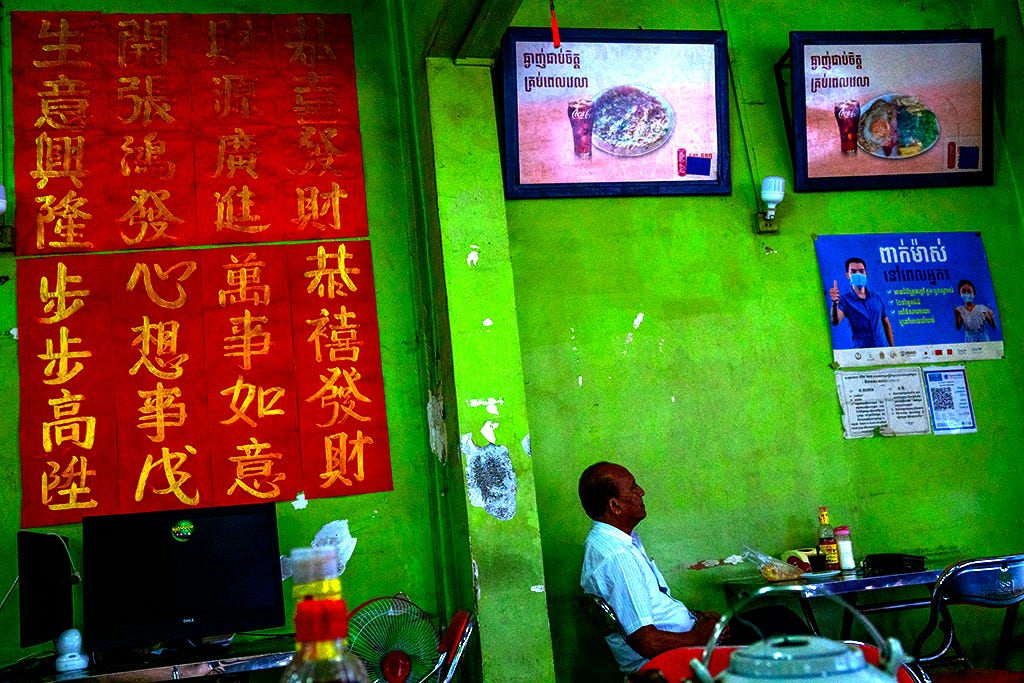
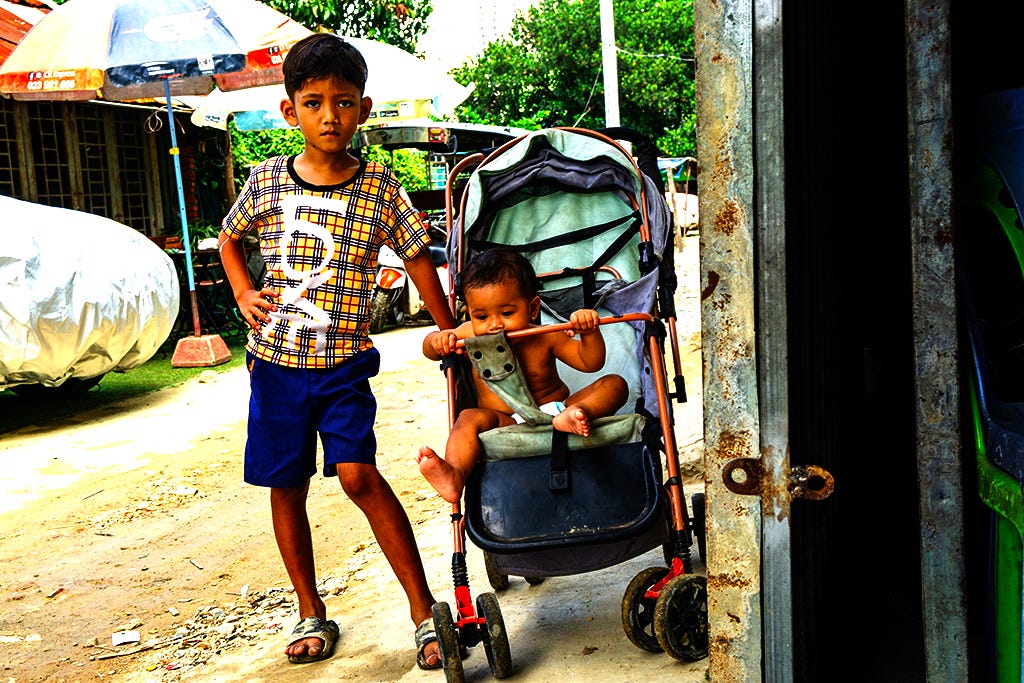
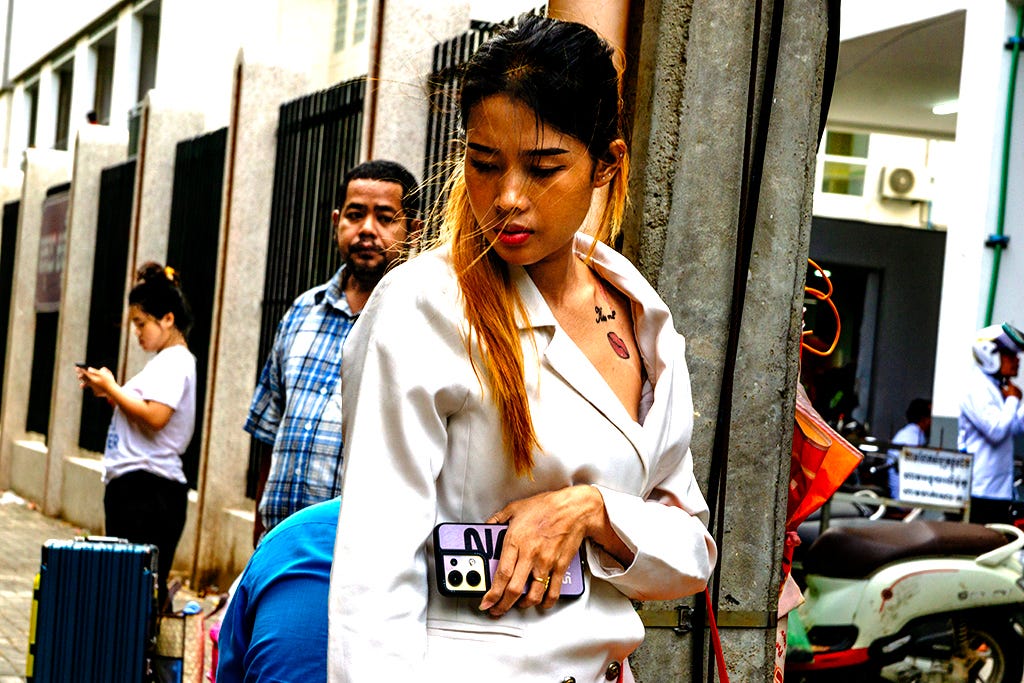
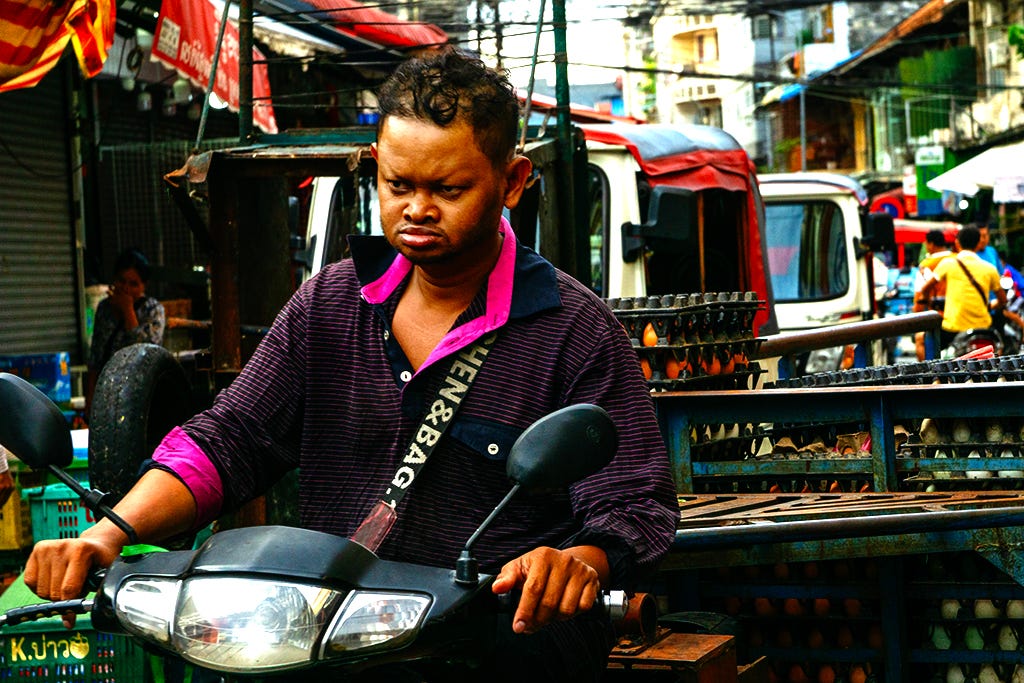
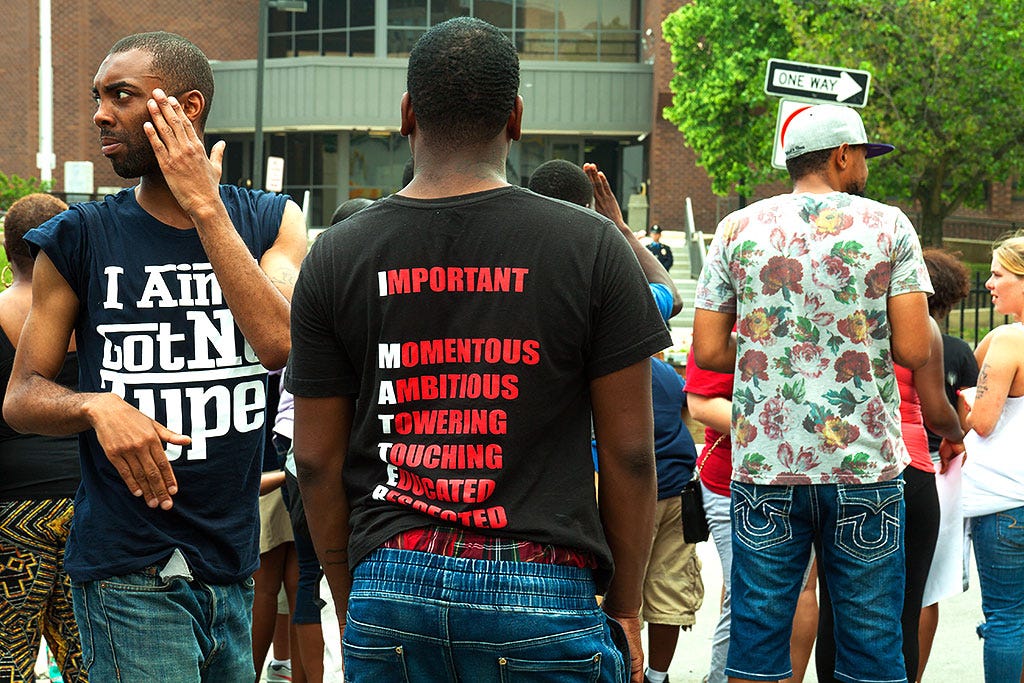
Comments
Post a Comment